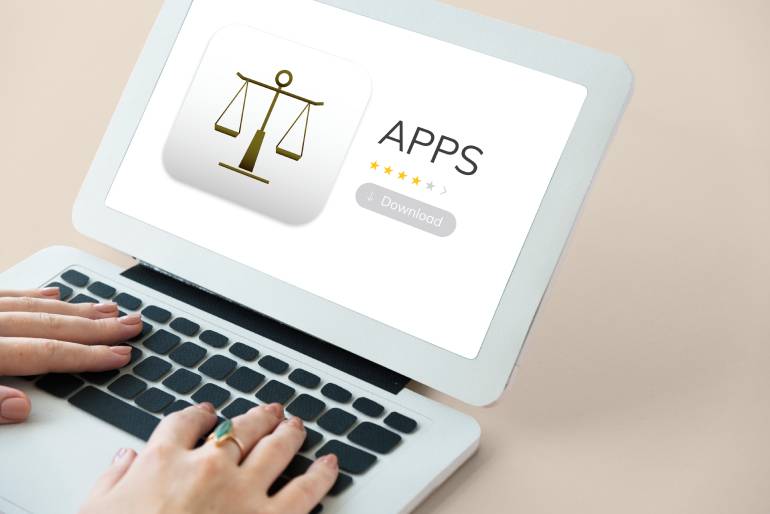In today’s digital landscape, managing online reputation is no longer a marketing choice—it’s a legal necessity. Businesses operating in Thailand, whether local SMEs or multi-location enterprises, rely on their Google Business Profile to influence potential customers and rank well in local searches. Reviews—particularly on Google—are the most publicly visible representation of your brand, your customer experience, and, crucially, your legal risk exposure.
With over 90% of Thai consumers and foreign visitors reading online reviews before making a purchase or booking a service, a single five-star review can boost your visibility. At the same time, a single policy violation or fake review can lead to review deletion, profile suspension, and long-term reputation damage. Worse, under Thai law, it may even open the door to civil or criminal liability.
In this comprehensive legal article, Pimlegal takes you through Google’s 2025 Review Policy, explains what business owners can and cannot do under both Google’s rules and Thai law, and provides practical legal guidance on review collection, response strategy, employee training, and compliance audits. Whether you run a medical clinic in Sukhumvit, a franchise of wellness spas across Thailand, or a multinational retail chain, this guide is essential reading for staying visible and legally secure.
Google Reviews in Thailand: Opportunity and Legal Risk
Google has become the single most powerful review platform in the world, accounting for more than 79% of all online reviews globally. In Thailand, that number is even higher for industries such as beauty and aesthetics, hospitality, healthcare, and legal services. For businesses in these sectors, Google reviews are not just testimonials—they are essential assets for SEO, foot traffic, customer trust, and social proof.
But they are also legal minefields. Every review is a public statement. Every reply is a record. And every violation—whether unintentional or deliberate—can result in lost visibility, sanctions by Google, and lawsuits under Thailand’s defamation law, the Computer Crimes Act, and the Personal Data Protection Act (PDPA).
To understand what business owners can and cannot do, we must examine both Google’s review guidelines and the legal obligations imposed under Thai legislation.
Google Review Policy 2025: Core Principles and Enforcement
In 2025, Google continues to refine its moderation algorithms, combining AI-based detection systems with human analyst review. Google’s review policy is designed to ensure that content on Google Search and Google Maps is honest, unbiased, and not misleading.
The policy applies to all forms of user-generated content—written reviews, images, and videos—and is governed by the Google Maps User Generated Content Policy. Business owners and customers alike must comply with restrictions on spam, harassment, fake content, sexual material, off-topic commentary, and conflict of interest.
These are not just technicalities. Businesses in violation may face:
- Immediate review removal
- Temporary or permanent Google Business Profile suspension
- Lowered search visibility
- Automated removal of star ratings and public trust
For Thai businesses, that’s only the beginning. In some cases, Google violations may also constitute criminal offenses or expose a business to civil litigation under Thai law. Let’s examine how.

What Business Owners in Thailand Cannot Do Under Google Policy and Thai Law
Many businesses unintentionally engage in practices that violate Google’s policy and trigger liability under Thai law. Here’s what business owners must avoid:
Offering Incentives for Reviews
Under Google’s 2025 review guidelines, businesses are not permitted to offer discounts, free items, loyalty points, or cash in exchange for reviews—regardless of whether the review is positive or not. Google considers any incentive a form of manipulation.
Under Thai consumer protection law, offering a reward in exchange for customer testimonials may constitute unfair advertising or misrepresentation, particularly if the incentive is not disclosed. Under Section 22 of Thailand’s Consumer Protection Act, businesses are prohibited from engaging in deceptive practices that create a false impression about the goods or services.
Buying, Selling, or Creating Fake Reviews
Google explicitly bans businesses from writing their own reviews, paying third parties to write reviews, or generating mass reviews through bots or overseas click farms.
In Thailand, this constitutes a criminal offense under Section 14(1) of the Computer Crimes Act, which prohibits entering false data into a computer system that causes harm to another person or the public. Penalties include up to five years imprisonment or a fine of up to 100,000 baht.
In addition, competitors harmed by such tactics may sue for civil damages under Section 420 of the Thai Civil and Commercial Code, which allows for compensation where wrongful conduct causes reputational or financial harm.
Review Gating or Selective Solicitation
Businesses are prohibited from asking only happy customers for reviews while suppressing or ignoring dissatisfied ones. This is known as review gating, and it violates Google’s rules because it skews the review ecosystem.
In Thailand, this could also be interpreted as an act of intentional omission or partial misrepresentation, potentially leading to lawsuits for unfair trade practices or loss of public trust.
Impersonation or Conflict of Interest
A common violation involves staff, friends, or family posting reviews pretending to be customers. Even posting from personal Gmail accounts rather than business accounts is traceable through IP logs and browser behavior.
Thai courts have ruled in favor of plaintiffs where it was proven that fake reviews were written by employees or PR agencies. Impersonation may also be prosecuted under the Criminal Code Section 267, relating to false statements in public records, and Section 14(1) of the Computer Crimes Act if the content was posted online with malicious intent.
Posting Inappropriate or Harassing Content in Replies
Google prohibits replies that disclose confidential information, retaliate against reviewers, or include hate speech. Businesses that identify and attack customers in review replies—such as sharing booking information or health details—may violate Thailand’s PDPA, which prohibits unauthorized disclosure of personal data.
Replying with sarcasm, defamation, or aggressive language can expose the business to counter-defamation lawsuits or consumer protection complaints.
What Business Owners in Thailand Can Legally Do
Now that we’ve reviewed what’s prohibited, let’s look at what Thai business owners are permitted—and encouraged—to do to build their online reputation safely and legally.
You may ask customers to leave reviews, so long as you do not offer rewards, imply that only positive reviews are welcome, or pressure them into writing reviews. Google permits review requests via email, QR codes, or follow-up messages, provided they are neutral in tone and voluntary.
You may respond to reviews, including negative ones, so long as you maintain professionalism, avoid personal attacks, and do not disclose sensitive data. In fact, responding to negative reviews improves brand trust and signals good customer care. A respectful response can mitigate damage and turn critics into loyal customers.
You may flag fake or inappropriate reviews through Google’s “Report Review” function and appeal if reviews are removed unjustly. If the review violates Thai law, you may also pursue legal action for online defamation, request a court order to reveal the reviewer’s identity, and seek financial compensation.
You may use tools like drip campaigns to automate review collection, as long as the requests are evenly distributed, not bulk-delivered, and do not pressure the recipient.

Legal Consequences of Violating Review Guidelines in Thailand
Violating Google’s review policy may result in platform enforcement—but violating Thai law carries far more serious consequences. Let’s break them down:
If you are caught incentivizing, fabricating, or manipulating reviews, and it causes reputational harm to a competitor or misleads consumers, you may be sued for:
- Defamation (Thai Penal Code, Sections 326–328)
- Computer Crime (Section 14(1) of the Computer Crimes Act)
- Consumer Protection violations
- Tort liability (Section 420 of the Civil and Commercial Code)
You may face:
- Fines of up to 200,000 baht
- Imprisonment of up to five years (in serious cybercrime cases)
- Court-ordered removal of the review or business listing
- Public apologies and compensation claims
Competitors or victims of fake reviews may also file a complaint with the Office of the Consumer Protection Board, the PDPA Committee, or the Cyber Crime Investigation Bureau, triggering formal investigations.
How to Stay Compliant: Pimlegal’s Recommendations
To operate legally and protect your reputation under Google’s 2025 policy and Thai law, Pimlegal recommends implementing a review compliance strategy built around five pillars.
First, develop a review policy SOP (standard operating procedure). This should include guidelines for all staff on how to ask for reviews, how to respond, and how to report issues.
Second, conduct regular audits of your Google Business Profiles across all locations. Monitor for sudden spikes, duplicated language, fake accounts, or inappropriate content. If any red flags arise, act quickly.
Third, train your staff, especially those on the front lines. Receptionists, managers, social media teams, and customer service staff should all understand the boundaries of review compliance, the basics of the Computer Crimes Act, and the importance of neutrality.
Fourth, use reputable tools and platforms. Avoid cheap offshore marketing firms or automated review apps that promise results. If an agency suggests paying for reviews, leave immediately—they are exposing your business to litigation and profile suspension.
Finally, retain legal counsel to review your review management practices. Having a legal advisor draft disclaimers, train your teams, and issue cease-and-desist letters in case of fake review attacks can save you millions in lost revenue and reputational damage.
Reputation Is Not Just an Asset It’s a Legal Duty
In the digital age, your online reviews are more than testimonials—they are legal documents, potential liabilities, and powerful marketing tools. When used responsibly and in compliance with both Google’s 2025 Review Policy and Thai legal frameworks, they can elevate your business, build trust, and ensure long-term growth.
But when misused, they can lead to public backlash, profile takedowns, or worse—criminal charges and litigation.
Pimlegal helps Thai and international businesses operate safely in this environment by providing legal audits, compliance training, and direct representation in review disputes. Whether you’re responding to fake reviews, building a safe review strategy, or facing legal threats, our team ensures that your voice remains protected, your rights enforced, and your reputation intact.
